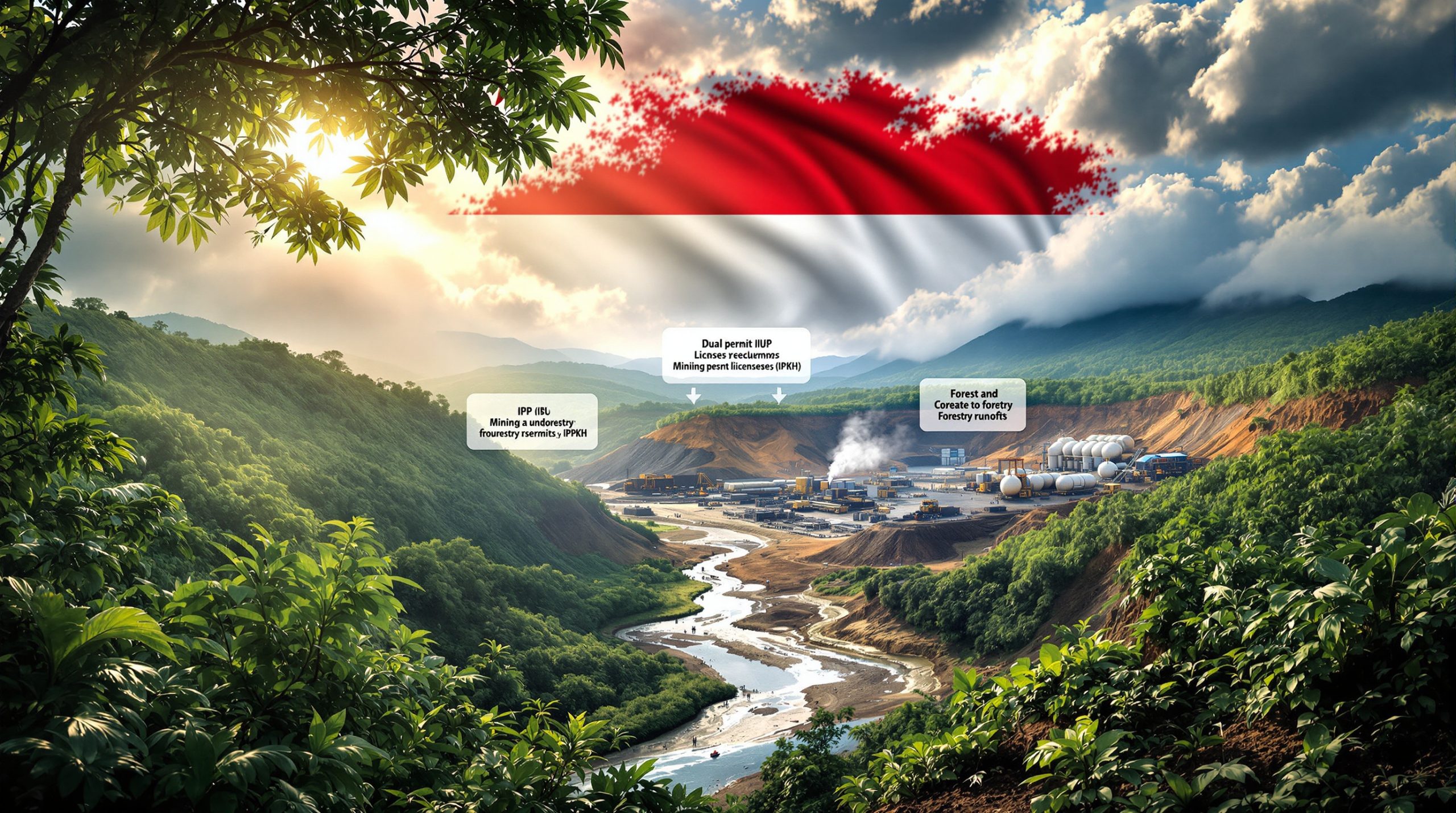The Strategic Significance of the BP-EGAS Mediterranean Gas Deal
The BP-EGAS Mediterranean gas wells deal represents a pivotal strategic partnership aimed at reversing Egypt's declining natural gas production. This collaboration involves drilling five deepwater wells in the Mediterranean Sea, leveraging existing West Nile Delta infrastructure to maximize efficiency and accelerate production timelines. The partnership addresses Egypt's growing energy security transition concerns while reinforcing its ambitions to become a regional energy hub.
The agreement comes at a critical juncture, with Egypt's natural gas output having declined by over 40% from March 2021 to May 2025, creating significant pressure on both domestic energy security and economic stability. By tapping into Mediterranean reserves at depths ranging from 300 to 1,500 meters, this partnership aims to stabilize production and potentially restore Egypt's position as a natural gas exporter.
For BP, this initiative builds on six decades of continuous operations in Egypt, reinforcing its position as one of the largest foreign investors in the country's energy sector. The strategic focus on utilizing existing infrastructure demonstrates a pragmatic approach to resource development that balances exploration risk with operational efficiency.
Impact on Egypt's Energy Landscape
Egypt's natural gas production has faced significant challenges, with output declining by over 40% from March 2021 to May 2025. This precipitous drop—from robust production to approximately 3,545 million cubic meters—has forced the country to rely heavily on costly imports to meet domestic demand.
The severe production decline has created a substantial burden on Egypt's foreign currency reserves, with millions of dollars diverted to secure energy imports rather than supporting other economic development priorities. This situation has compromised industrial output, particularly in energy-intensive sectors such as fertilizers and petrochemicals, where reliable gas supply is essential for maintaining production capacity.
The BP-EGAS partnership aims to stabilize this declining trajectory by tapping into Mediterranean reserves at depths ranging from 300 to 1,500 meters, potentially restoring self-sufficiency and export capabilities. Success in this venture would have cascading benefits throughout the Egyptian economy, from reduced import costs to enhanced industrial productivity and potential export revenues.
Expected Production Impact
The five deepwater wells are strategically positioned to access proven geological formations with high production potential. While specific production targets remain confidential, industry analysts suggest that successful development could add significant volumes to Egypt's daily output, potentially reversing the current deficit situation.
This production boost would first address domestic supply shortfalls before potentially enabling Egypt to resume its role as a regional gas exporter. The timing is particularly critical as Egypt seeks to leverage its existing liquefied natural gas infrastructure to capitalize on strong global demand and favorable LNG market implications.
Technical Approach and Implementation Strategy
BP's technical strategy centers on cost-effective resource development through integration with existing infrastructure. The five planned deepwater wells will connect to the established West Nile Delta facilities, minimizing capital expenditure while accelerating production timelines.
This approach demonstrates pragmatic engineering that balances exploration risk with operational efficiency, allowing for faster monetization of any discoveries made during the drilling campaign scheduled to commence in 2026. By leveraging existing processing and transportation infrastructure, the partnership can significantly reduce development costs and time-to-market.
Deepwater Drilling Technology
The project will employ advanced deepwater drilling technologies suitable for the Mediterranean's varying depths and geological conditions. Operating at depths between 300 and 1,500 meters requires specialized equipment and expertise that BP brings from its global operations portfolio.
Modern seismic imaging technologies have already identified promising structures within the target areas, improving drilling precision and reducing exploration risk. The drilling program will implement advanced well completion techniques to maximize flow rates and ultimate recovery from the targeted reservoirs.
Infrastructure Integration
Connecting the new wells to existing West Nile Delta infrastructure represents a key technical advantage. This integration allows for:
- Reduced capital expenditure on new processing facilities
- Faster production startup timeframes
- Lower operational costs through shared maintenance and operations
- Optimized capacity utilization of existing pipeline networks
- Enhanced project economics through reduced development costs
Egypt's Broader Energy Strategy
The BP-EGAS Mediterranean gas wells deal forms part of Egypt's comprehensive strategy to revitalize its energy sector through international partnerships. This approach includes:
| Strategic Component | Key Partners | Investment Value | Focus Area |
|---|---|---|---|
| BP-EGAS Mediterranean Wells | BP | Undisclosed | Deepwater exploration |
| Recent Exploration Contracts | Shell, Eni, Arcius Energy | $340+ million | Various offshore blocks |
| Infrastructure Development | Multiple partners | Ongoing | LNG export facilities |
| Regulatory Reforms | Government-led | Policy-based | Investment attraction |
The government has systematically pursued these partnerships to arrest production decline while positioning Egypt as a Mediterranean energy hub with both domestic supply security and export potential.
Egypt's Multi-Pronged Approach to Energy Security
Egypt's energy security strategy extends beyond single projects to encompass a comprehensive approach to resource development, infrastructure enhancement, and regulatory reform. Key elements include:
-
Attracting Foreign Investment: Creating favorable fiscal terms and stable regulatory frameworks to encourage international oil company participation
-
Diversifying Supply Sources: Balancing domestic production with strategic import arrangements to ensure continuous supply
-
Infrastructure Development: Maintaining and expanding gas processing, transportation, and export facilities
-
Regulatory Modernization: Streamlining approval processes and providing contract stability to enhance investor confidence
-
Regional Coordination: Fostering partnerships with neighboring countries for mutual energy security benefits
Economic Implications for Egypt
The economic ramifications extend far beyond the energy sector itself. By potentially reducing import dependency, the agreement could significantly improve Egypt's balance of payments position. Natural gas self-sufficiency would free up foreign currency reserves currently allocated to energy imports, potentially strengthening the Egyptian pound and improving fiscal stability.
Additionally, restored production volumes would support industrial capacity utilization rates, particularly in energy-intensive sectors like fertilizers, petrochemicals, and manufacturing. These industries have suffered from inconsistent gas supply, leading to reduced output and economic underperformance.
Fiscal and Monetary Benefits
The financial implications of restored gas production are substantial:
- Reduced Import Expenditure: Every cubic meter of domestically produced gas directly offsets costly imports
- Foreign Currency Preservation: Lowered import requirements reduce pressure on limited foreign exchange reserves
- Tax Revenue Enhancement: Increased production generates additional royalties and tax income
- Industrial Production Growth: Reliable energy supply supports manufacturing output expansion
- Export Potential: Surplus production could generate foreign currency earnings through LNG exports
Key Stakeholders and Their Roles
Primary Partners and Their Roles
-
BP: Brings six decades of operational experience in Egypt, technical expertise in deepwater drilling, and significant financial resources as one of the largest foreign investors in Egypt's energy sector.
-
EGAS (Egyptian Natural Gas Holding Company): Represents state interests, provides regulatory framework, facilitates access to existing infrastructure, and ensures alignment with national energy security objectives.
-
Egyptian Government: Creates policy environment, offers investment incentives, and coordinates strategic energy planning to maximize economic benefits.
-
Industrial Consumers: Egyptian manufacturers and power generators who stand to benefit from more reliable domestic gas supply at potentially more stable prices.
Secondary Stakeholders
The agreement's impact extends to numerous additional stakeholders:
- Local Communities: Benefit from employment opportunities and economic activity
- Financial Institutions: Provide project financing and assess sovereign risk implications
- Environmental Organizations: Monitor development impacts on Mediterranean ecosystems
- Regional Gas Buyers: Assess potential changes to regional supply dynamics
- Technology Providers: Supply specialized equipment and services for deepwater operations
Regional Context and Competitive Landscape
The BP-EGAS Mediterranean gas wells deal occurs against a backdrop of dynamic regional energy developments. While Egypt pursues production stabilization, other Mediterranean players are making significant moves:
-
The recent cancellation of a $945 million acquisition deal between Energean and Carlyle highlights regulatory complexities in Mediterranean energy investments.
-
Israel continues developing its substantial Leviathan and Tamar fields, positioning itself as a major regional gas exporter.
-
Cyprus and Lebanon are advancing their own exploration efforts, creating a competitive landscape for investment and export markets.
Egypt's partnership with BP represents a pragmatic approach focused on near-term production gains through established relationships rather than speculative new ventures. Furthermore, this approach aligns with broader trends in global energy outlook projections for the region.
Comparative Regional Development Timelines
Egypt's approach contrasts with regional competitors in several important ways:
- Speed to Market: The use of existing infrastructure accelerates production startup compared to greenfield developments elsewhere
- Investment Scale: Targeted approach requires less upfront capital than major new field developments
- Risk Profile: Working with proven partners in established geological provinces reduces exploration uncertainty
- Market Access: Egypt's existing LNG facilities provide immediate export capabilities once domestic needs are met
Future Development Potential
If the five Mediterranean wells deliver as anticipated, several positive developments could follow:
-
Export Revival: Restored production volumes could eventually support renewed LNG exports, generating foreign currency earnings.
-
Infrastructure Expansion: Success might justify additional investment in processing and transportation infrastructure.
-
Follow-on Exploration: Positive results would likely trigger additional exploration campaigns in adjacent areas.
-
Industrial Resurgence: Reliable gas supply could catalyze new industrial investments, particularly in energy-intensive sectors.
-
Regional Hub Status: Combined with existing LNG facilities, new production could strengthen Egypt's position as a regional energy trading hub.
Long-term Industry Evolution
Beyond immediate production benefits, successful development could position Egypt for evolving energy market opportunities:
- Hydrogen Development: Natural gas resources could support blue hydrogen production as global markets develop
- Industrial Diversification: Secure energy supply attracts downstream manufacturing investment
- Technology Transfer: Deepwater development brings advanced technologies and skills to the Egyptian workforce
- Climate Transition Alignment: Gas development can support displacement of higher-carbon fuels while renewable capacity expands
Challenges and Risk Factors
Despite its promise, the BP-EGAS partnership faces several potential challenges:
-
Technical Risks: Deepwater drilling at 300-1,500 meters presents inherent operational complexities.
-
Production Decline Rates: New wells must offset natural decline rates in existing fields to achieve net production growth.
-
Global Energy Transition: Long-term natural gas demand uncertainties amid decarbonization efforts could affect investment returns.
-
Regional Geopolitics: Eastern Mediterranean tensions could complicate operations or transportation arrangements.
-
Regulatory Consistency: Maintaining a stable investment framework will be essential for long-term development success.
Risk Mitigation Strategies
The partnership incorporates several approaches to manage these challenges:
- Phased Development: Incremental investment reduces exposure to market uncertainties
- Technical Redundancy: Drilling multiple wells increases the probability of commercial success
- Infrastructure Integration: Using existing facilities reduces capital at risk
- Commercial Flexibility: Production can be directed to domestic or export markets as conditions warrant
- Contractual Stability: Long-term agreements provide regulatory certainty for investors
FAQ: BP-EGAS Mediterranean Gas Wells Deal
When will drilling operations for the new Mediterranean gas wells begin?
A: Drilling operations are scheduled to commence in 2026, targeting water depths between 300 and 1,500 meters.
How will discoveries from these wells be developed?
A: Any discoveries will be tied into existing West Nile Delta infrastructure to expedite production and minimize capital expenditure.
What is BP's long-term commitment to Egypt's energy sector?
A: BP plans to significantly increase its gas production capacity in Egypt by 2030 and beyond, building on its six-decade presence in the country.
How does this agreement relate to recent exploration success in the region?
A: The new wells follow BP's successful discoveries in the area, including the Fayoum-5 and El King-2 exploration wells, which are part of the ongoing West Nile Delta development.
What is the significance of using existing infrastructure for new wells?
A: Utilizing established West Nile Delta facilities allows for faster production startup, lower development costs, and improved project economics.
Strategic Implications of the BP-EGAS Mediterranean Partnership
The BP-EGAS Mediterranean gas wells deal represents more than just an upstream development project—it embodies Egypt's pragmatic approach to energy security and economic stability. By combining institutional support with international expertise, Egypt is establishing the foundation for renewed energy self-sufficiency and potential export capabilities.
For BP, the agreement deepens its already substantial presence in one of the Middle East and North Africa's most promising energy markets. The use of existing infrastructure to accelerate production demonstrates a cost-conscious approach to resource development that maximizes returns while managing exploration risk.
The success of this partnership could mark a turning point for Egypt's energy sector, easing pressure on the balance of payments while enhancing investor confidence at a critical juncture for the country's economy. The Mediterranean gas wells project thus serves as both a practical energy solution and a strategic instrument for broader macroeconomic resilience. This approach contrasts with more controversial Alaska drilling policy shifts occurring in other parts of the world.
Further Exploration:
Readers interested in learning more about Egypt's energy sector developments can also explore related educational content at Reuters' coverage of the BP-EGAS deal, which offers additional perspectives on this significant US gas price recovery development.
Interested in Getting Early Alerts on the Next Major Resource Discovery?
Discover how significant resource finds like the BP-EGAS Mediterranean gas wells can create substantial investment opportunities by exploring Discovery Alert's proprietary Discovery IQ model, which provides real-time notifications of major ASX mineral discoveries before the broader market. Visit our discoveries page to see how early identification of game-changing announcements can deliver exceptional returns.




